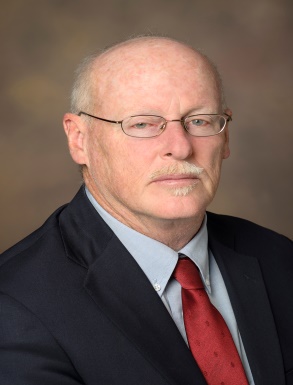
Heike Allgayer
Full Professor and Head/Director Dept. of Experimental Surgery – Cancer Metastasis
Medical Faculty Mannheim, Ruprecht Karls University Heidelberg,
Germany
Biography
1995 Final Medical Board Examination (MD), Medicine, Ludwig-Maximilians-University Munich 1996 Dr. med. (Medicine, Translational Research) Ludwig-Maximilians-University Munich, with “summa cum laude†1997-1999 Postdoctoral Fellow (Molecular Biology, Metastasis), MD Anderson Cancer Center, Houston/USA 1999 PhD, Molecular Biology, Graduate School of Biomedical Sciences (GSBS), MD Anderson Cancer Center, Houston/USA 1999-2001 Assistant Professor, Section Molecular Biology, Dept. Surgery, Clinical Surgeon, Surgical Oncology, Ludwig-Maximilians-University Munich 2001 Priv.Doz. (Associate Professor), Experimental Surgery/Molecular Biology, Ludwig- Maximilians-University Munich 2003 Diploma in Medical Economics, Chur, Switzerland 2004 Surgical Board Exam, Munich/Germany 2004-2015 Full Professor and Head, Dept. of Experimental Surgery, Med. Faculty Mannheim, Univ. of Heidelberg, Molecular Oncology of Solid Tumors Unit, DKFZ Heidelberg, Germany Since 2015 Full Professor and Head/Director, Dept. of Experimental Surgery - Cancer Metastasis, Med. Faculty Mannheim, Univ. of Heidelberg; and Centre for Biomedicine and Medical Technology Mannheim (CBTM), Medical Faculty Mannheim, University of Heidelberg 2 Positions and Employment 1996-1997 Medical Intern, Dept. Surgery, Klinikum Großhadern, Ludwig-Maximilians-University Munich 1997-1999 Fellow at the Dept. of Cancer Biology, MD Anderson Cancer Center, Houston,TX (Prof. Douglas D. Boyd, PhD, Principal Investigator, Prof. J.I. Fidler, Head) 1999-2004 Assistant, later Associate Professor, Molecular Oncology, PI of section Molecular Biology, in parallel: Resident, Dept. of Surgery, Klinikum Großhadern, Ludwig-Maximilians-University Munich 2004-2015 Full Professor and Head, Dept. Experimental Surgery, Medical Faculty Mannheim, University of Heidelberg, and Adjunct Professor, DKFZ (German Cancer Research Center) Heidelberg Since 2015 Full Professor and Head/Director, Dept. of Experimental Surgery - Cancer Metastasis, Med. Faculty Mannheim, Univ. of Heidelberg; and Centre for Biomedicine and Medical Technology Mannheim (CBTM), Medical Faculty Mannheim, University of Heidelberg Professional Memberships 1995 Vereinigung der Bayerischen Chirurgen 1998 Active/Corresponding Member der American Association of Cancer Research (AACR) 1999 Deutsche Gesellschaft für Chirurgie 1999 Molekularbiologische Arbeitsgemeinschaft der Deutschen Gesellschaft für Chirurgie (CAMO) 2003 Berufsverband der Deutschen Chirurgen (BDC) 2005 European Association of Cancer Research (EACR) 2006 American Society of Clinical Oncology (ASCO) 2007 EACR Council Member, Mitglied des Communications Committee 2007 Member of EORTC Pathobiology Group 2010 Deutsche Gesellschaft für Stammzellforschung 2011 Metastasis Research Society 2013 Task Force „Surgical Oncology“, American Association for Cancer Research (AACR) 2014 European Society for Translational Medicine (EUSTM) 2016 EORTC Translational Research Advisory Committee (EORTC-TRAC; chair: Emilie Varin) 2017 Elected Member of EACS Fellowship of the European Academy of Cancer Sciences
Research Interest
Metastasis research · microRNAs in metastasis · Tumor-associated proteolysis · Translational metastasis research · Molecular staging of cancer

Prof. Dr. Stefan Pfister
Pediatric Neurooncology (B062)
Deutsches Krebsforschungszentrum
Germany
Biography
Pediatric Neurooncology is currently a vibrant field of research. This is desperately needed, since brain tumors have become the number one cause of cancer-related mortality in children. Our group aims to bridge the gap between generating genomic screening data as well as faithful models for preclinical drug testing, and exploiting these data for the sake of our patients. The first goal includes the identification, validation and clinical application of prognostic and predictive biomarkers in different childhood brain tumors, including genome, transcriptome and epigenome analysis, and integrative bioinformatics approaches. The second major focus involves the generation of suitable in vitro and in vivo models for systematic pre-clinical testing of novel smart drugs, often in combination with established cytotoxic drugs, chemotherapy or immunotherapy. These novel therapies are ultimately translated into patient care, tightly linked with thorough patient selection based on the genetic/molecular signature of the individual tumor (“personalized cancer careâ€).
Research Interest
The thorough understanding of the immense biological heterogeneity of childhood brain tumors is a prerequisite for targeted treatment approaches. Thus, we will continue to comprehensively investigate the entire genetic and epigenetic diversity of childhood brain tumors within and across histopathological entities. Many of these novel methods are currently being prepared for routine diagnostic applications in a clinical setting through our nationally and internationally acting molecular diagnostics programs (www.pediatric-neurooncology.com). Preclinical models will allow us to specifically test biological hypotheses gained from genome-wide primary tumor analyses in vitro and in vivo, before they are recommended for use in patients. Another focus will be the analysis of clonality within tumors, their respective metastases, and tumor relapses, by ultra-deep next-generation and single-cell sequencing techniques. As a third major focus, we have started focusing on the detection of tumor-specific alteration in body fluids, such as cerebrospinal fluid and plasma, which can be exploited for molecular diagnostics, tumor cell clearance (minimal residual disease), detection of molecular targets, and primary resistance mechanisms. Finally, we will evaluate novel as well as many conventional therapies systematically for their inter-individual range in pharmacokinetics. These differences might help explaining successes and failures in individual patients.

David T Harris
Executive Director, AHSC Biorepository
University of Arizona, USA
United States
Biography
David T Harris is a graduate of Wake Forest University where he obtained BS in Biology, Mathematics and Psychology. He has earned his Doctorate in Microbiology and Immunology in 1982. In 1989, he has joined the Faculty at the University of Arizona in the Department of Immunology. He has established the first cord blood bank in 1992. He currently serves as the Executive Director of the University of Arizona Biorepository, as well as the Director of Quality at the GMP Laboratory. His research interests include stem cells and regenerative medicine
Research Interest
His research interests include stem cells and regenerative medicine
